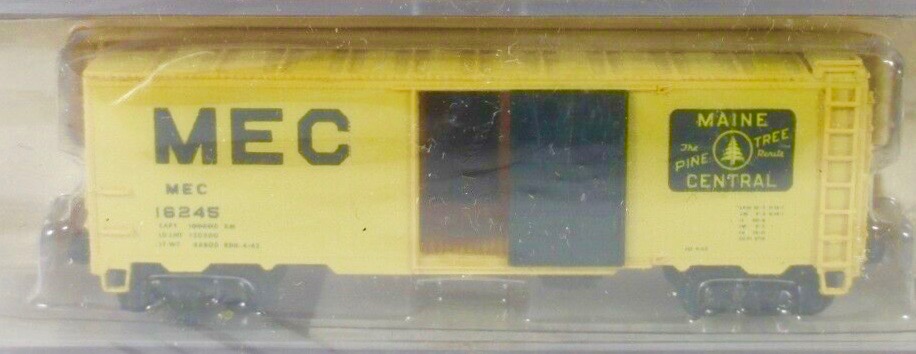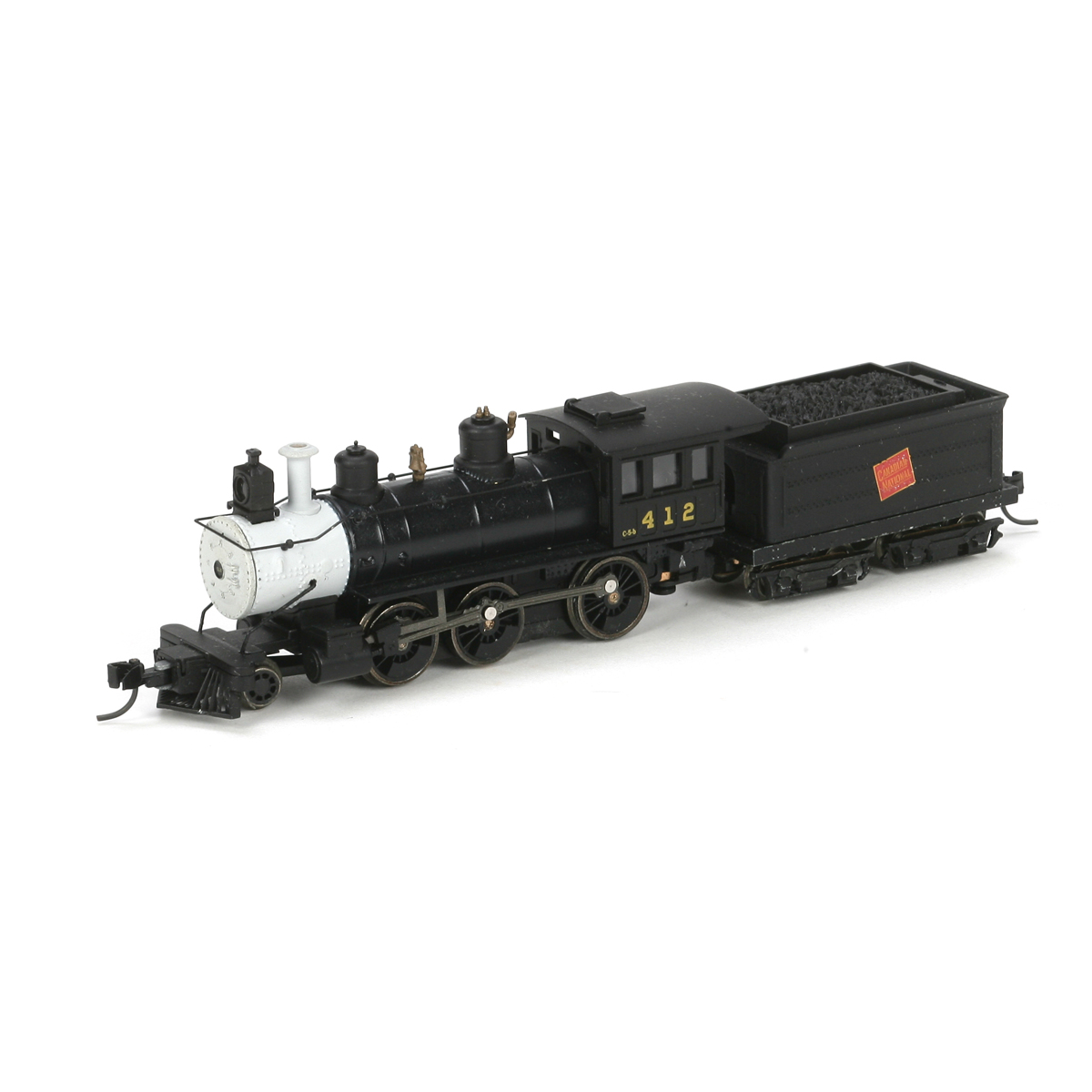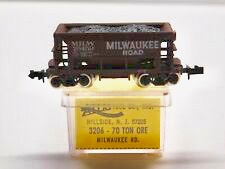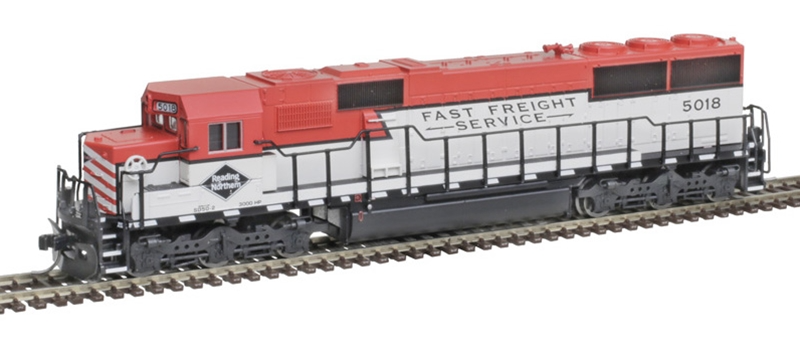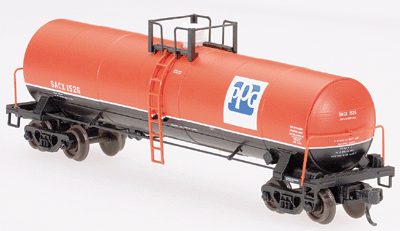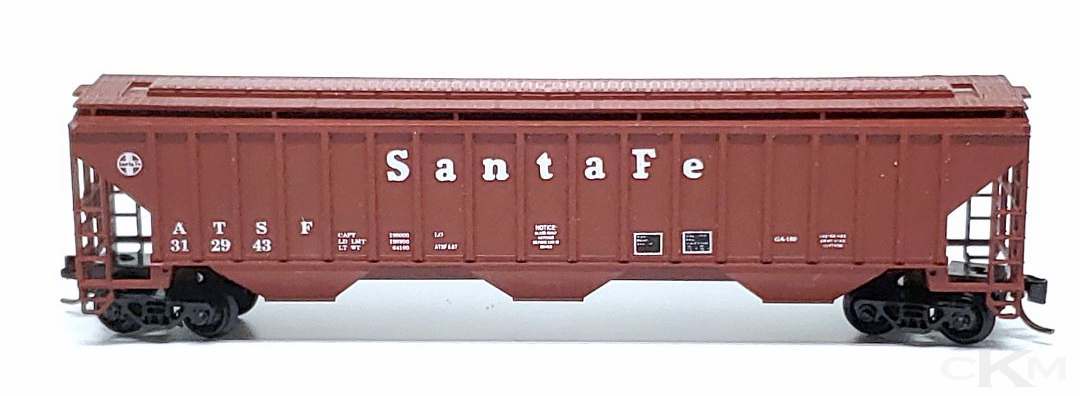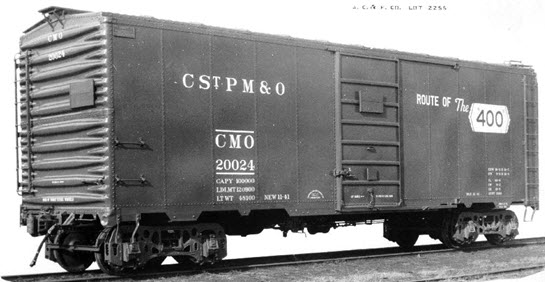Prototype History: The Association of American Railroads had been establishing design standards for freight cars since the early part of the century. Each new design standard meant higher capacity, lighter, more durable cars.
The Modified 1937 AAR boxcar design was a result of the industries continued search for more freight volume per carload. The real first attempt at a standardized design had been the 1932 ARA steel boxcar with an inside height of 9'-4" . In 1936 the board of the AAR approved the 1937 AAR design with a 10'-0" inside height. This became a standard throughout the industry.
The Modified 1937 AAR boxcar design was a result of the industries continued search for more freight volume per carload. The real first attempt at a standardized design had been the 1932 ARA steel boxcar with an inside height of 9'-4" . In 1936 the board of the AAR approved the 1937 AAR design with a 10'-0" inside height. This became a standard throughout the industry.
Road Name History:  The Maine Central Railroad Company (reporting mark MEC) was a former U. S. Class I railroad in central and southern Maine. It was chartered in 1856 and began operations in 1862. By 1884, Maine Central was the longest railroad in New England. Maine Central had expanded to 1,358 miles (2,185 km) when the United States Railroad Administration assumed control in 1917. The main line extended from South Portland, Maine, east to the Canada?United States border with New Brunswick, and a Mountain Division extended west from Portland to Vermont and north into Quebec. The main line was double track from South Portland to Royal Junction, where it split into a "lower road" through Brunswick and Augusta and a "back road" through Lewiston which converged at Waterville into single track to Bangor and points east. Branch lines served the industrial center of Rumford, a resort hotel on Moosehead Lake, and coastal communities from Bath to Eastport.
The Maine Central Railroad Company (reporting mark MEC) was a former U. S. Class I railroad in central and southern Maine. It was chartered in 1856 and began operations in 1862. By 1884, Maine Central was the longest railroad in New England. Maine Central had expanded to 1,358 miles (2,185 km) when the United States Railroad Administration assumed control in 1917. The main line extended from South Portland, Maine, east to the Canada?United States border with New Brunswick, and a Mountain Division extended west from Portland to Vermont and north into Quebec. The main line was double track from South Portland to Royal Junction, where it split into a "lower road" through Brunswick and Augusta and a "back road" through Lewiston which converged at Waterville into single track to Bangor and points east. Branch lines served the industrial center of Rumford, a resort hotel on Moosehead Lake, and coastal communities from Bath to Eastport.
At the end of 1970 it operated 921 miles (1,482 km) of road on 1,183 miles (1,904 km) of track; that year it reported 950 million ton-miles of revenue freight. The Maine Central remained independent until 1981, when it became part of what is now the Pan Am Railways network in 1981.
From Wikipedia

At the end of 1970 it operated 921 miles (1,482 km) of road on 1,183 miles (1,904 km) of track; that year it reported 950 million ton-miles of revenue freight. The Maine Central remained independent until 1981, when it became part of what is now the Pan Am Railways network in 1981.
From Wikipedia
Brand/Importer Information: Brooklyn Locomotive works is a hobby shop that is located in Manalapan, New Jersey. Pete A. Postel founded BLW in 1979. They specialize in N Scale although they claim to cover other scales as well. In addition to serving as a volume discounter with competitive pricing for N Scale hobbyists, Brooklyn Locomotive works also often works with various manufacturers to create their own line of branded special runs. These special runs are usually only available through their retail operation (online or storefront). They also worked for a limited time in the early 1980s as a custom decorator. They bought undecorated kits from Micro-Trains and painstakingly custom painted and decaled a series of cars for collectors.
Item created by: CNW400 on 2020-09-27 18:57:44. Last edited by CNW400 on 2020-09-27 18:57:46
If you see errors or missing data in this entry, please feel free to log in and edit it. Anyone with a Gmail account can log in instantly.
If you see errors or missing data in this entry, please feel free to log in and edit it. Anyone with a Gmail account can log in instantly.


